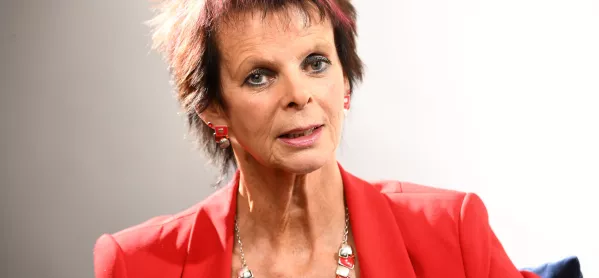- Home
- Exclusive: DfE ‘shouldn’t prop up awarding bodies’
Exclusive: DfE ‘shouldn’t prop up awarding bodies’

The Department for Education’s focus for T levels is on quality and not “propping up” the awarding bodies' sector, the skills minister has said.
Anne Milton was speaking exclusively to Tes as the DfE launched its invitation to tender for awarding bodies to win the right to develop, deliver and award the first three T levels from September 2020.
Unlike with A levels, where there is a competitive market with multiple awarding bodies offering qualifications in each subject, T levels will have just a single awarding body for each route.
Ms Milton said the government’s role is to ensure gold-standard qualifications are available for young people, adding: “We’re not there to prop up an industry.
“If you want a gold standard, you produce one standard, not multiple ones.”
T-levels: protecting standards
In 2016, the government published its post-16 skills plan and the report of the independent panel on technical education, known as the Sainsbury review. The review panel was concerned that the competitive market in technical qualifications had led to a “race to the bottom” in terms of quality and instead recommended giving a single awarding body rights over each T level.
Ms Milton said Lord Sainsbury did “a huge amount of work” and she thinks it is the right thing to do to follow the panel’s recommendation.
“Having a single awarding body protects the standards,” she added.
The DfE will work with each awarding body to minimise risk in the scheme but “you have to make sure you have all the steps in place in case anything goes wrong”, Ms Milton said. The details of this monitoring process are currently being “thrashed out” by officials in the department, she added.
'Commerical damage'
The skills minister acknowledged there were “some concerns” about the single awarding body model, but said the department was working to make sure there is “stability” for awarding organisations.
In July, the Federation of Awarding Bodies (FAB), the trade association for professional and technical awarding organisations, launched legal action against the DfE over its decision to adopt a single awarding body model for each qualification.
One of FAB’s concerns centred on “commercial damage” that the plans could inflict on the sector. However, it dropped its legal challenge just two weeks after it was launched in light of what it saw as “significant concessions” from the DfE in the draft invitation to tender documentation.
Ms Milton added: “We’re mindful of risks for operators in this model. We have been engaging with awarding bodies to make sure there is a balance [in the T-level system].”
'A huge amount of work'
The first three T levels in construction, digital and education and childcare are set to be delivered from September 2020.
The skills minister acknowledged that today’s announcement is important for those starting Year 10 this week. “What is very significant is that today is the start of term for the first cohort who will be able to take T levels in 2020,” she said.
“A huge amount of work has gone into T levels. We are determined to make these really prestigious qualifications.
“We have worked with 200 employers to design the content – 2,000 students have already been on industry placement pilots.”
'We are on track'
In May, the education secretary, Damian Hinds, rejected calls from the DfE’s permanent secretary, Jonathan Slater, to delay the introduction of the new technical qualifications by a year, after the senior civil servant warned that the September 2020 start date appeared “very challenging”.
Ms Milton reiterated that T levels were on track to begin in two years' time. “As the minister responsible for T levels, I have regular meetings with officials and I am confident that we are on track,” she said.
She said the department was working to tailor marketing materials for pupils, parents, teachers and providers to ensure they know about the new T levels that are due to start in 2020.
'Intellectual snobbery' over universities
The introduction of T levels will mark a step change in people’s attitudes towards technical education, Ms Milton believes.
She said: “We have had to do a lot of catching up [as a country]. We’ve been slow in this country to embrace technical education.
“I think there has been quite a lot of intellectual snobbery in seeing schools and universities as the only route. They are right for some but not for others.
“If young people have the skills they need, then the world is their oyster.”
Keep reading for just £1 per month
You've reached your limit of free articles this month. Subscribe for £1 per month for three months and get:
- Unlimited access to all Tes magazine content
- Exclusive subscriber-only stories
- Award-winning email newsletters



